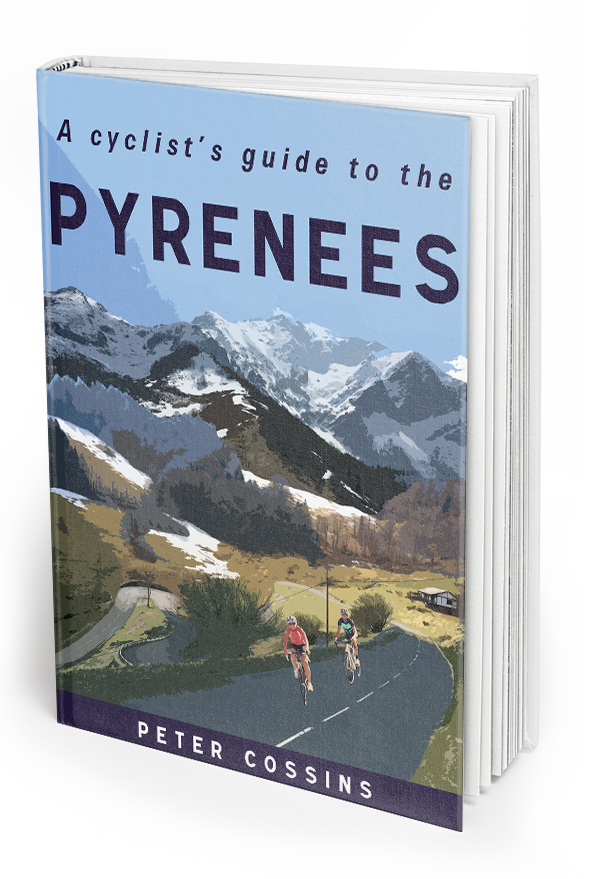Words by Peter Cossins | Photo: CorVos/SWpix.com
If the number of stories that a stage serves up provides an indication of a stage’s quality, the Giro’s 205-kilometre run between Citadella and Monte Zoncolan was very good indeed.
The surprise star of the show was Lorenzo Fortunato, who not only ended an eight-year winless run that dated back to his years as a junior, but also provided Ivan Basso and Alberto Contador’s second-division Eolo-Kometa team with the most prestigious of stage wins on their debut appearance in a Grand Tour.
Part of a large breakaway group that featured big hitters such as Trek-Segafredo’s Bauke Mollema and Jumbo-Visma’s George Bennett, Fortunato took his opportunity extremely well, firstly thanks to a blistering acceleration on the Zoncolan’s early and easier slopes that left his better-known rivals for dust and enabled him to bridge up to lone leader Jan Tratnik, and, ultimately, by judging his effort perfectly on the sadistically steep ramps in the climb’s final three kilometres. The Taco van der Hoorn-like moment when he realised victory was his and his expression instantly transformed from agony to ecstasy was glorious to see.
As he’s toasted by his teammates around the dinner table this evening, Fortunato should raise his glass in thanks to compatriots Edoardo Affini, who was working for Bennett, and Jacopo Mosca, who was doing the same for Mollema. This pair rode like themselves to a standstill to ensure that the break had enough of a cushion at the foot of the Zoncolan to hold off the late charge from the GC favourites, and Fortunato wouldn’t have had his moment without their contribution.
Yates has now climbed to second on GC and, although Bernal seems peerless for the moment, the Briton knows better than most how quickly a leader’s fortunes can change during the final days at the Giro.
When that charge came, Egan Bernal underlined once more that he is the strong man of this corsa rosa, capitalising on the spadework done by his Ineos Grenadiers teammates by gaining more ground on all of his GC rivals. All of the talk coming into the race was focused on whether Bernal’s ailing back would hold up as well as his legs. Having come through trial by Zoncolan with his grip on the maglia rosa tightened, the Colombian will be more confident of adding the Giro crown to the Tour title he won in 2019.
While Bernal was untouchable once again, BikeExchange’s Simon Yates sparkled too after two weeks during which he’s often been a peripheral figure. Over that time there’s been much debate about whether the Englishman had peaked too early as he romped to victory at the Giro primer that is the Tour of the Alps, or whether he was simply biding his time until the final and most mountainous section of the race arrived. It appears we have our answer. Yates has now climbed to second on GC and, although Bernal seems peerless for the moment, the Briton knows better than most how quickly a leader’s fortunes can change during the final days at the Giro.
Behind this pair, we saw Damiano Caruso confirm his unlikely status as a podium contender with what was arguably his best performance yet. Tenth in last year’s Tour de France when he was primarily focused on working for Bahrain Victorious team leader Mikel Landa, the Italian has made the most of the opportunity presented by the Spaniard’s unfortunate first-week abandon and looks well set for the best Grand Tour performance of his long career.
Aleksandr Vlasov was the day’s biggest loser, dropping from second to fourth overall. It was hard to understand the tactics employed by his Astana PremierTech team. The sky blues set the pace approaching the Zoncolan, but didn’t put any of the Russian’s rivals in trouble, while also failing to bring the break back within stage-winning range. When the last of Vlasov’s teammates pulled aside, leaving him isolated, Bernal still had four teammates ready to work for him. Ultimately, Astana seemed to be doing Ineos’s work for them.
Further down the classification, Remco Evenepoel lost further ground, dropping a place to eighth. Although he’s still determined to fight for a place in the top 10, the young Belgian said after the stage that his Deceuninck-QuickStep team should now look for other opportunities in the race, which may free Joao Almeida from his Remco-shepherding duties.
Stepping aside from performances good and not so good, the stage also highlighted how finishes on sky-scraping ascents like the Zoncolan can squeeze almost all interest and excitement from the rest of the day’s action, to the point where this compression of the significant moments into the final few kilometres can leave you feeling a little cheated. The likes of the Zoncolan, Angliru and the Col de la Loze are so horrendously steep that they inevitably result in a waiting game, for riders and spectators alike.
Come the final savagely steep climb, the racing can be engrossing, but not because there’s the kind of cut and thrust that you’d expect of a classic mountain stage. Instead, they’re a slow-motion grind, where the agony is extremely evident on the riders’ faces. While this makes them very watchable, there’s not the same measure of unpredictability that makes sport truly compelling. As a consequence, the Zoncolan didn’t compare with Wednesday’s stage on the white roads to Montalcino and will also, I hope, be eclipsed by the racing we’ll see on Monday’s epic-looking stage through the heart of the Dolomites to Cortina d’Ampezzo.

Peter Cossins’s latest book, A Cyclist’s Guide to the Pyrenees, which features more than 100 routes and more than 300 climbs and passes, is now available from all good book shops and from Great Northern Books.






